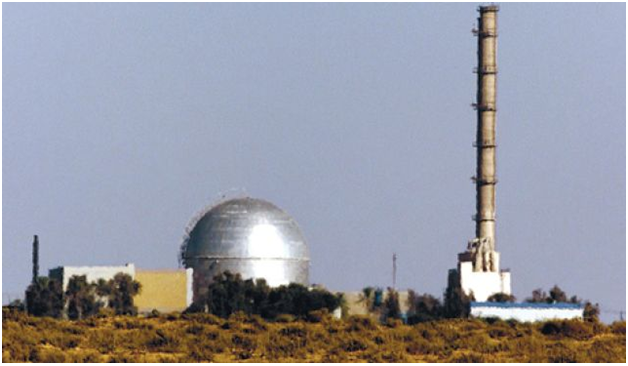I have blogged about Israel's nuclear arsenal in the past. Although Israel will not publicly admit to having nuclear weapons, it is generally believed that they do have deliverable nuclear warheads. Israel has never signed the 1970 Nuclear Non-Proliferation Treaty. New information has just surfaced about the Israeli arsenal in an article in the Bulletin of Atomic Scientists from two nuclear security scholars at the Federation of American Scientists.
Over the last couple of decades a wide variety of agencies and analysts have estimate that Israel possesses from seventy five to four hundred nuclear warheads. The high estimate was based on the assumption that all the fissile material created at Israel's Dimona reactor would be used to build nuclear weapons. The authors of the new study have decided that Israel probably keeps a stockpile of weapons grade plutonium This would reduce the estimation of their warhead stockpile. If Israel is mainly concerned about deterrence, then its arsenal would only need to contain big high-yield warheads. The number of these warhead would not exceed Israel's long range delivery systems.
Israel has hundreds of F-16 combat planes but the report's authors conclude that there would only be one or two F-16 squadrons that would have special trained crews, specific procedures and modifications necessary to deliver nuclear warheads. The authors have used satellite imagery to estimate the number of nuclear capable Jericho long range ballistic missiles. They claim that earlier estimations of a hundred missiles are much too high. The satellite pictures only show twenty three caves that could hold such missiles. This is the same number of nuclear capable missiles that were estimated in a White House memo written in 1969. With respect to submarine delivery systems, there are some reports that Israel has been developing nuclear capable Harpoon cruise missiles but the report does not take a position either for or against this possibility.
The report is skeptical about the possibility that Israel has tactical or battlefield nuclear devices. This type of nuclear weapon requires extensive testing and there is no evidence that Israel has conducted any nuclear tests. Without this type of testing, it is unlikely that Israel could develop the technical capability for such tactical nuclear weapons. The authors conclude that Israel's nuclear doctrine is probably centered around deterring an attack or allowing Israel to strike back if attacked. They don't believe that Israel sees nuclear warheads as having battlefield potential.
Because Israel has decided to keep their nuclear arsenal secret, that prevents them from openly carrying out testing that would advance their technology and it also prevents them from openly using their nuclear arsenal as a bargaining chip in international negotiations. If Israel admitted the existence of its nuclear arsenal, then its Muslim neighbors would be scrambling to develop their own nuclear weapons. This would destabilize the whole region and possibly lead to nuclear war. For the moment, it is just as well that Israel has been keeping its nuclear capability secret.
Dimona reactor in Israel:
